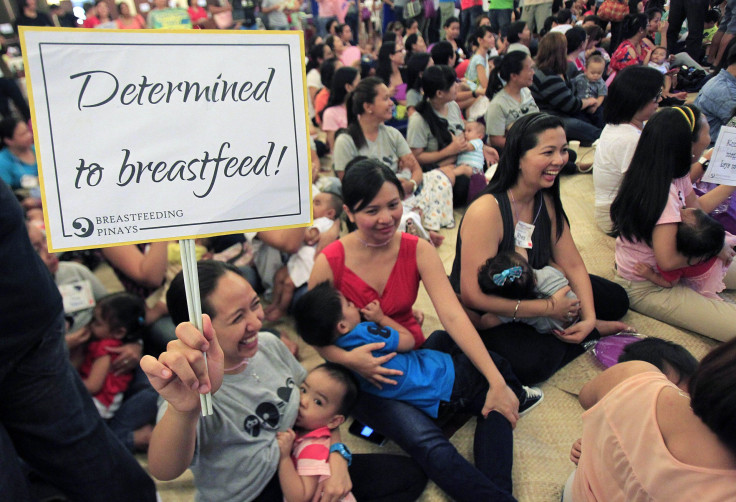Breastfeeding Cuts Mothers’ Depression Risk, But Failed Attempts Raise It Even Higher

New mothers can significantly reduce their risk for depression by breastfeeding their babies, but a new study finds this decline is offset by an even greater uptick when mothers try to breastfeed and fail.
Pediatricians have extolled the benefits of breastfeeding for decades. Not only does breast milk offer newborns a more robust set of nutrients than bottled formula; breastfeeding carves out an intimate block of time for moms to spend with their babies. For all the physical benefits afforded to the child, mothers may reap just as many benefits, if not more, psychologically. The alternative could be dramatic: One in 10 mothers suffers from post-partum depression.
Not all mothers can breastfeed, unfortunately. The latest research suggests the experience of trying and failing hits mothers twice as hard emotionally as never having ventured an attempt at all. Dr. Maria Iacovou, co-researcher from the University of Cambridge, says caregivers need to consider these cases, too.
“It’s clear that these mothers need a great deal of understanding and support,” she said in a University release. “There is currently hardly any skilled specialist help for these mothers, and this is something else that health providers should be thinking about.”
Iacovou and her colleagues collected data on nearly 14,000 mothers who gave birth in the early 1990s. Maternal depression levels were taken when babies were 8 weeks old, 8 months, 21 months, and 33 months old. In addition, the data included two assessments during pregnancy, in order to provide clues about preexisting mental health issues.
Overall, mothers who planned to breastfeed and went on to do so were 50 percent less likely to suffer depressive symptoms than mothers who made no plans at all. Worse, mothers who made plans to breastfeed but never followed through, either because they changed their minds or were physically unable, had more than twice the risk of mothers who made no plans.
For Iacovou, encouragement alone isn’t enough. Health officials have a responsibility to extend genuine support, she says, comforting mothers with practical advice and reassuring praise.
“Lots of mothers and babies take to breastfeeding pretty easily. But for many others, it doesn’t come naturally at all; for these mothers, having someone with the training, the skills, and perhaps most importantly the time to help them get it right, can make all the difference.”
Doctors generally prefer breastfeeding over bottle feeding because of the health benefits, which babies enjoy in both the short- and long-term. Initially, their immune systems get fortified. They’re less likely to experience sudden inflammation, due in large part to a healthy colony of bacteria in their gut. Down the road, breastfeeding begins to pay dividends. Adults who were breastfed are less likely to suffer from heart disease and obesity, and they typically score higher on measures of intelligence than people who weren’t breastfed.
Health officials also need to account for how maternal depression can bleed into the child’s mental health, Iacovou said. “In fact, the effects on mothers’ mental health that we report in this study are also likely to have an impact on babies, since maternal depression has previously been shown to have negative effects on many aspects of children’s development.”
This should only reinforce the duty health care workers have to ensure mothers approach breastfeeding with a sound understanding of their limits. While the practice no doubt offers mutual benefits for those involved, when the stakes get higher on one end, inevitably they’re balanced out by the other.
Source: Borra C, Iacovou M, Sevilla A. New Evidence on Breastfeeding and Postpartum Depression: The Importance of Understanding Women’s Intentions. Maternal and Child Health. 2014.



























